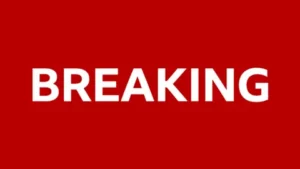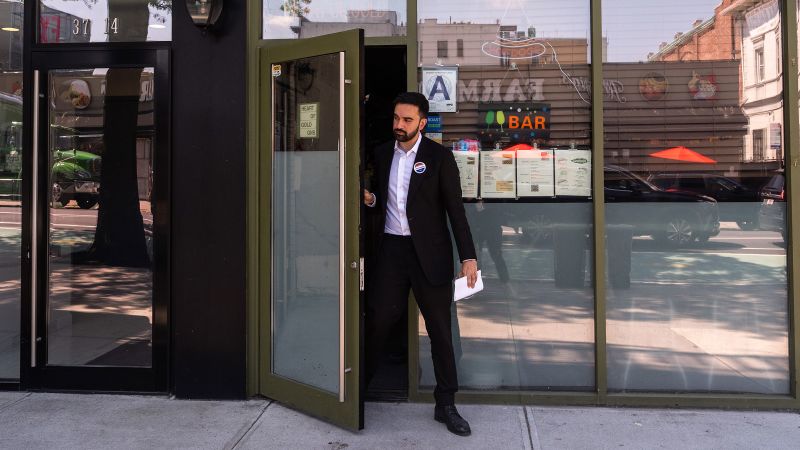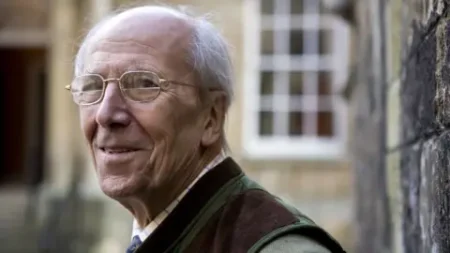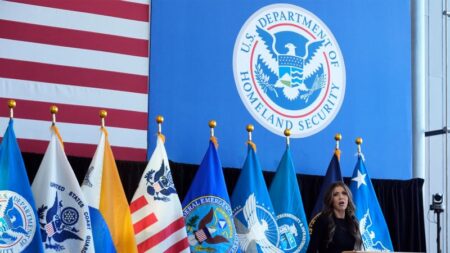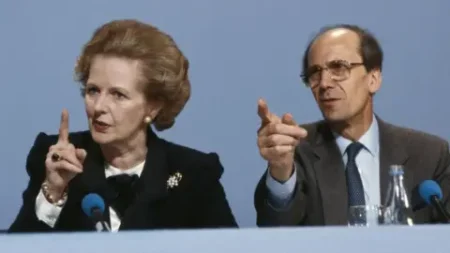In a significant political turn, Zohran Mamdani, a 33-year-old state assemblyman and democratic socialist, has emerged as a leading candidate in the New York City mayoral primary after a surge fueled by viral videos and progressive proposals that resonate with younger voters. Recently, Andrew Cuomo, the former governor of New York attempting a political revival through this election, conceded to Mamdani. Despite the concession, the final decision on the nomination will hinge on ranked-choice voting results still to be tallied.
Mamdani, who represents parts of Queens, one of the nation’s most diverse areas, attracted considerable attention during the campaign, particularly at public events. At a Juneteenth festival in Queens, he found himself surrounded by supporters eager to take selfies with the rising star. His campaign successfully capitalized on the frustrations of progressive constituencies, particularly in response to Cuomo’s controversial tenure, which has been marred by accusations of harassment and ethical concerns. In one memorable campaign video, Mamdani drew parallels between Cuomo and a Bollywood villain, employing humor to explain New York’s voting systems in Hindi and Urdu.
However, Mamdani’s rapid ascent has also sparked anxiety among the Democratic establishment, which fears that his leftist platform could alienate moderate voters. Critics argue that his controversial remarks about sensitive issues, such as the ongoing Israel-Hamas conflict, might pose risks that could be leveraged by opponents, potentially damaging the Democratic Party’s standing both locally and nationally.
Throughout the campaign, Mamdani maintained a lighthearted demeanor, often cracking jokes while engaging with constituents during sweltering summer days. His mantra, as conveyed to a CNN reporter, emphasized the demand for a newer generation of leadership, viewing his campaign as indicative of broader desires for change among New Yorkers.
Born an immigrant from Uganda and raised in Cape Town, South Africa, Mamdani later settled in New York City. His academic journey saw him excel at the Bronx High School of Science and subsequently studying at Bowdoin College. As the son of noted academic Mahmood Mamdani and filmmaker Mira Nair, his upbringing was steeped in diverse cultural experiences which manifest in his political ideology.
Before this mayoral campaign, Mamdani gained national attention for his activism, notably participating in a 15-day hunger strike alongside New York City cab drivers advocating for relief from crippling debt. He has also explored artistic outlets, performing as a rapper under the name Mr. Cardamom. His proposed policies include freezing rent for nearly one million New Yorkers in rent-stabilized apartments and expanding public services to include universal childcare and free city bus service, financed by proposed tax increases on high-income individuals—a suggestion met with skepticism from many, including Governor Kathy Hochul.
Mamdani’s grassroots fundraising efforts have yielded $7 million, drawing support from individuals and endorsements from high-profile figures like Rep. Alexandria Ocasio-Cortez and Sen. Bernie Sanders. Their backing underscores the campaign’s potential significance, not just for New York City, but as a reflection of shifting political sentiments nationwide. Ocasio-Cortez articulated this sentiment during a supportive rally, presenting Mamdani’s candidacy as emblematic of a larger struggle against a stagnant political legacy.
However, the Democratic establishment’s apprehension was laid bare during a pre-election call by Third Way, a center-leaning think tank, predicting that a Mamdani victory could hinder national efforts to counteract the political strategies of Donald Trump. In a series of heated exchanges during debates, Cuomo criticized Mamdani’s perceived lack of experience, suggesting that a formidable candidate like Trump would overwhelm him electorally. Conversely, Mamdani retaliated by highlighting Cuomo’s controversies, positioning himself as a candidate of integrity amidst the backdrop of ethical transgressions that have plagued the former governor.
The debates reflect a contentious political landscape, especially regarding Mamdani’s statements about antisemitism amid the Israel-Hamas war. His characterization of the situation, which includes accusations of “genocide” against the Israeli government, elicited severe backlash from various sectors, including mainstream media and some within the Democratic Party. Critics have warned that his rhetoric may incite violence against Jewish communities, prompting him to respond with emotional candor about the threats he has faced during this divisive campaign.
As New York City approaches a turning point in its political narrative, Mamdani’s candidacy embodies the complexities and challenges of contemporary governance and community representation. With increased scrutiny and the weight of historical responsibilities on his shoulders, the upcoming months will be pivotal not only for Mamdani himself but also for the trajectory of the Democratic Party in a city undergoing significant demographic and ideological shifts.

